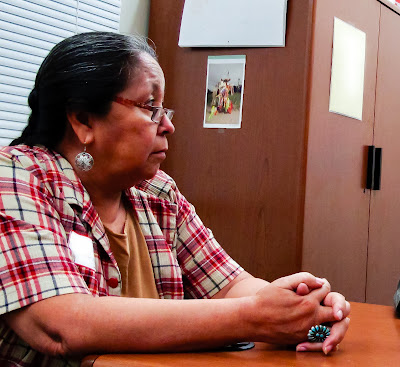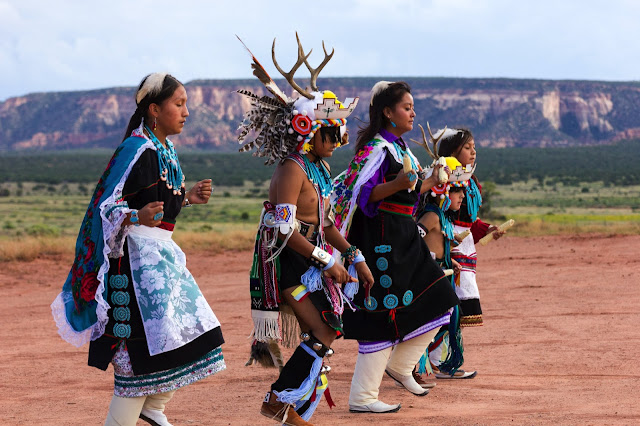Conflict Flares Over Sioux Voting Rights
This story appeared in Indian Country Media Network in 2017. For more on stories like this, see my book, American Apartheid: The Native American Struggle....
Not good enough, said Crow Creek Sioux Tribe Chairman Brandon Sazue, when the state of South Dakota and Buffalo County revealed that Crow Creek reservation voters would have minimal ballot-box access in 2018. The county’s auditor, who is tasked with conducting the election—renting space, training pollworkers and the like—had asked the state for federal Help America Vote Act funding to cover just 11 days across both the primary and general elections. That is far cry from the 94 days available in other parts of the state, Sazue pointed out.
 Native voters have long struggled to get to the polls in Buffalo County. In 2004, a federal court ordered the county to redistrict after an ACLU lawsuit showed that its three commission districts were grossly gerrymandered. Almost 1,500 Natives were packed into one district, while a few hundred additional county residents, Native and white, were split between two more. This allowed whites to control the local government and its resources.
Native voters have long struggled to get to the polls in Buffalo County. In 2004, a federal court ordered the county to redistrict after an ACLU lawsuit showed that its three commission districts were grossly gerrymandered. Almost 1,500 Natives were packed into one district, while a few hundred additional county residents, Native and white, were split between two more. This allowed whites to control the local government and its resources.Crow Creek Sioux tribal member Donita Loudner, shown here, is one of three Buffalo County commissioners. She said that the commission, which is the county’s governing body, had not been fully consulted in crafting the election plan. “I learned from the newspaper what Crow Creek would have during the 2018 elections,” Loudner said.
Buffalo County auditor Elaine Wulff disagreed. She said she had “followed the commission’s lead” and “discussed it with the commissioners ahead of time” before requesting Help America Vote Act (HAVA) money for the Crow Creek polling place. When Wulff was asked whether the three county commissioners had in fact met, decided on a number of days for the Crow Creek satellite office, and conveyed that information to her for the HAVA request, she responded, “They approved what I did.”
The voting plan for Crow Creek is currently being reviewed, according to commission chair Lloyd Lutter, who, like Wulff, is not a tribal member: “It’s under discussion. No decision has been made. We are now waiting for a letter from the tribal chairman to tell us what they want.” Loudner confirmed that a letter was on the way.
South Dakota’s rules for disbursing federal HAVA funds allow such plans to be revisited in “extraordinary circumstances,” according to Jason Williams, spokesperson for the secretary of state, or chief elections official.
Providing equal voting rights in Buffalo County should be simple, said South Dakota state senator and Senate minority leader Troy Heinert, a Rosebud Sioux Tribe member. “Buffalo County is one of three counties in the state that are pre-approved for HAVA funding, so this should not be a problem. The money is there.”
Access to early voting and late registration at the county’s satellite office on Crow Creek—not just in the distant white-inhabited county seat—is a significant factor in ensuring equal rights, Heinert added: “We are a large rural state, and some people have limited ability to travel long distances to vote. Everyone should have an equal chance to participate in our democracy.”
Involvement in the political system is critical, Loudner added: “The county can’t say to our people, ‘This is what you get; take it or leave it.’ We have a voice.” She went on to observe, “After the lawsuit, our commission district boundaries were redrawn, and we were under federal monitoring for 10 years. Monitoring was limited, though—just on election day, and it was over in 2014—so all these behind-the-scenes problems have continued.”
Two Buffalo County commissioners and the auditor are up for re-election in 2018. Whether candidates will emerge to challenge any of them is not yet known.
Text and photo c. Stephanie Woodard.

